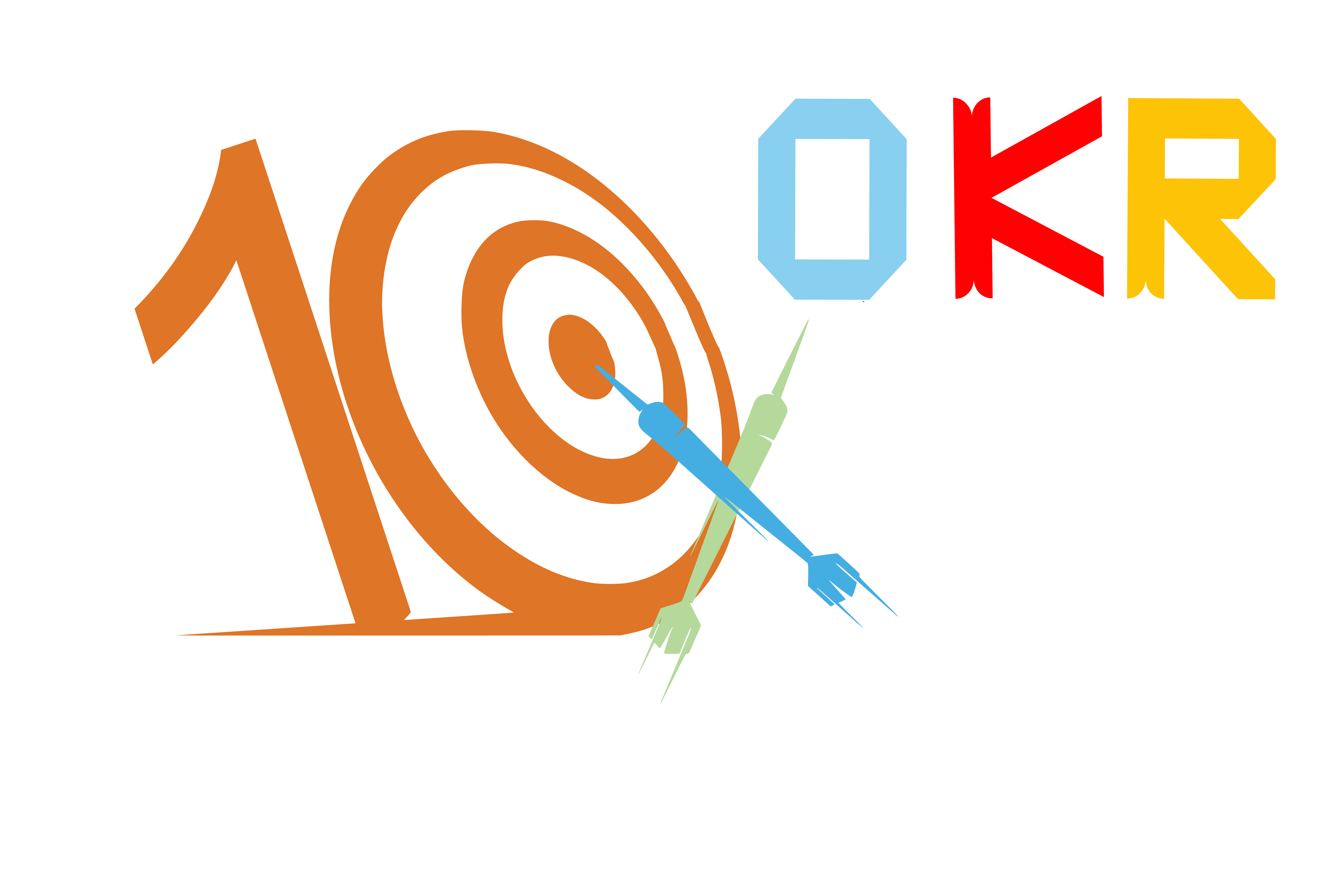Table of Contents
Generating Key Performance Indicators? Make use of SMART Goals.
The results grow more progressive and accurate when smart KPIs are created and added to assess business performance.
Although you may have heard the term “SMART KPIs” frequently used by analysts and marketers, it’s difficult to thoroughly investigate it online.
We’ll go over the basics of smart KPIs in this post, how they differ from smart goals and standard KPIs, how to utilise them for performance evaluation, and more.
Let’s get underway!!
The term “key” in the “Key Performance Indicator” definition implies that someone considered the measure adequate in significance to follow.
Your KPIs are metrics that are important to your company.
Imagine a KPI as your car’s speedometer. The gauge is what displays your current speed.
It’s useful information that enables you to drive more safely by allowing you to adjust your speed or deceleration as necessary. Simply said, the resource gives you the power to decide wisely and critically.
KPIs function similarly.
Key Performance Indicators Applied to Set a “SMART Goal”
A smart KPI is an improved version that has gone through a procedure or set of inquiries before appearing on your dashboard.
Smart refers to five traits that a KPI ought to have:
- Specific: They are specific to a particular goal or job.
- Measurable: easily defined by means of numbers or percentages
- Attainable: They should be considered feasible.
- Realistic: They are the result of a solid basis, which is realistic.
- Timely: They are accompanied by a deadline.
How Do Smart KPIs Improve Your Business?
Each company has distinct needs, wants, and desires based on its industry, vision, goals, and corporate objectives. Therefore, copying and pasting a formula when defining effective KPIs is not a good idea.
A SaaS-based business might evaluate income per client or customer lifetime value (CLTV), whereas an advertising agency might measure revenue per click.
When the company has a unique purpose, prudent KPIs can help.
They enable you to determine the KPI’s relevance to your business goal, value to your company, and timeliness of measurement.
In terms of numbers, there are hundreds of KPIs; however, only some KPIs are crucial to your company.
When your firm has a distinct purpose, sensible KPIs may assist that goal.
They assist you in determining the KPI’s relevance to your business goal, value to your company, and timeliness of measurement.
In terms of numbers, there are hundreds of KPIs; however, only some KPIs are crucial to your company.
The most beneficial and pertinent information for your organisation is presented via smart KPIs, which help you refine or focus your search.
What are the key differences between KPIs and smart goals?
Although some marketers use the terms smart goals and KPIs interchangeably, there is a significant distinction between the two.
Anyone who combines goals and KPIs risks developing unclear KPIs that contain errors.
However, we have made it very easy to remember. This is how: One way to think of a wise objective is as a finish line. You can consider a goal and ask yourself, “Did we achieve that?”
To help you comprehend, consider this illustration: Did we add 5,000 new followers to our YouTube channel by the end of the month?
Did we see a 30% increase in profits this year?
These straightforward “yes” or “no” questions are like finishing a race. Because you know what success
looks like and how to tell when you are and are not succeeding.On the other hand, KPIs are any metrics with a measuring scale associated with them. Similar to a speedometer with minimum and maximum indicators.
For SMART KPIs, consider the following:
Can the target audience, at least 80%, be aware of the campaign?
When individuals are heading out, and why?
How much does it cost to get a customer, and how can we reduce that cost?
Instead of a simple yes or no, these questions demand a full response based on the analysis of facts, insights, and events.
How Can I Make a Smart KPI?


Now that you know what smart KPIs are and how they differ from smart goals. Let’s look at a simple three-step process to create smart KPIs.
Define Your Objectives and Strategic Goals
You need to choose what strategic objective of the organisation you seek to measure before moving on. You may follow the competitors to find out how they get ready for their strategies so that you can always be one step ahead of your own.
Alternatively, ask your stakeholders and investors what they expect from the business by the end of a specific time frame, then set your objectives accordingly.
Most importantly, remember that each firm has its objectives, which are planned based on various variables, including the availability of resources, the size of the market, the available budget, and other market conditions.
So it’s always better to use an approach based on trial and error rather than a copy-and-paste approach when designing your business goals.
When composing KPIs, use the SMART format.
It’s finally time to put your KPIs on paper. Every time you create a new KPI, you can utilise the formula we’ve developed to ensure it follows the SMART format.
Hand-Pick Valuable KPIs
Find and research KPIs crucial for tracking, observing, and analysing how well employees and the organisation are achieving the above-mentioned strategic aim.
Start off by imagining what each target would look like if it were to succeed. If you want to expand your marketing pipeline, the following would constitute success for you:
- Increasing the number of contacts in the pipeline
- Expanding the pipeline’s contact rate of conversion
Once again, establishing a set of KPIs is preferable to copying others.
When selecting KPIs, be sure to put them through the SMART funnel to see whether or not they qualify as Smart KPIs.
How Can You Use Smart KPIs In Your Business?
Monitor the health of the business you run.
The health of your business is tracked using smart KPIs, which serve as a scorecard. They examine every facet of your business and pinpoint what keeps it from expanding.
We’ve discovered that tracking key performance indicators (KPIs) regularly in the four key areas of operations, finance, employees, and customers can help you determine your business’s emotional, operational, and financial health.
Evaluation of overall progress
To track progress towards your business goals, you may use a clever set of KPIs like Net Revenue, Total Sales, Gross Margin, Employee Satisfaction, etc.
You must utilise these clever KPIs to track weekly success and set annual or quarterly objectives. Again, selecting the appropriate set of KPIs is vital.
Become receptive to changes.
You can use KPIs to foresee the future and utilise them to figure out results. Indeed, you heard it right.
KPIs include a couple of leading indicators which help in forecasting future results and outcomes. Hence helping you in making needed modifications to your operational and strategic KPIs.
Resolving disputes or exploiting opportunities
Additionally, you can use a combination of different KPIs to solve inbound or outward business issues.
Suppose you are going through a sales slump. In this case, your strategy should be to examine a few KPIs, such as the quantity of sales calls, the number of appointments, the conversion rate, etc.
Put these KPIs on your dashboard and monitor them often to see what is most effective for you. Once completed, you can use that specific action to increase sales as opposed to trying everything and going awry.
To continually evaluate trends
You can recognise predefined trends in your figures when measuring the same KPIs.
These patterns provide a variety of benefits. To update your system or start a company-wide training initiative, you might compare the trends to anticipate when your organisation will reach a break-even point (when nothing significant is happening).
You can utilise this information to discuss favourable or adverse results by looking at how your team members performed concerning their KPIs.
Use the trends to develop practical goals for your company as well.
Conclusion
To summarise, SMART goals and KPIs are two essential assets for any organisation looking to boost performance. You censurer that your team is on the right track and has a clear path to success by giving them SMART goals. Additionally, by monitoring KPIs, you can assess your development and confirm that you are on course to meet your objectives.
If you haven’t already, please start implementing SMART objectives and KPIs in your organisation. They are a straightforward but effective technique to boost performance and accomplish your objectives.



